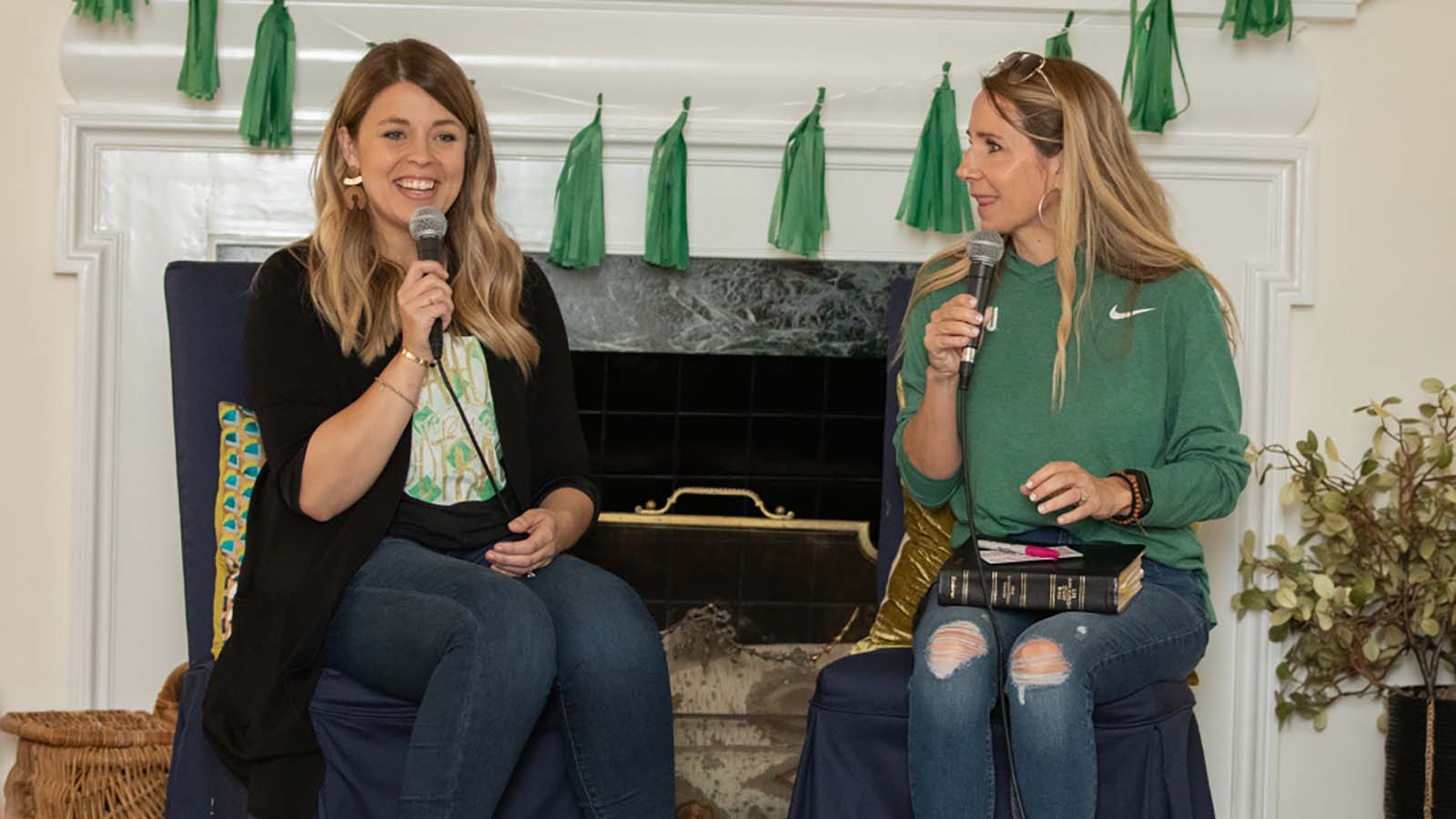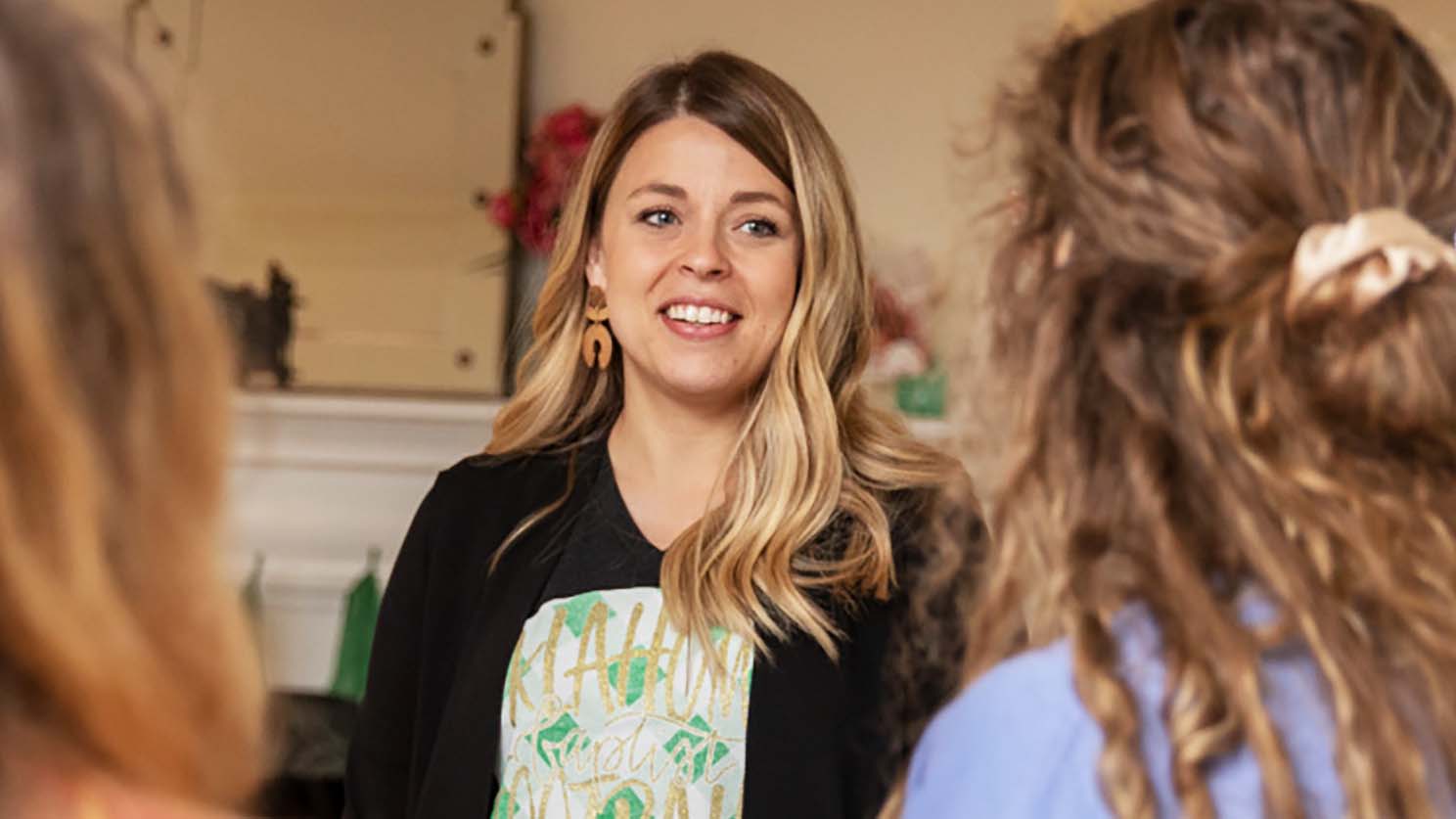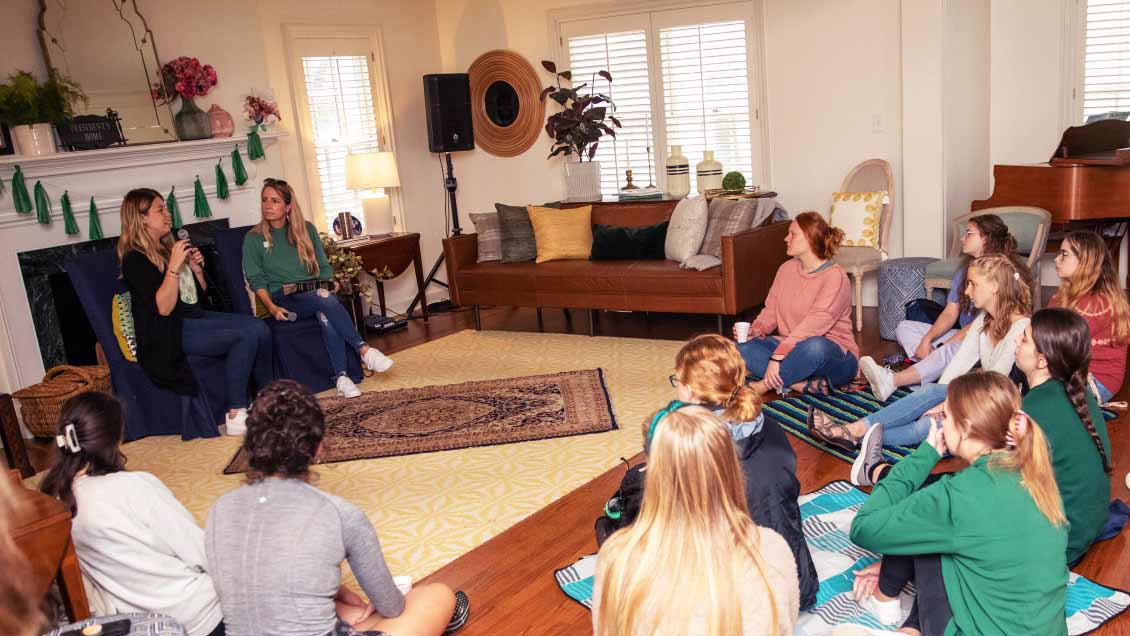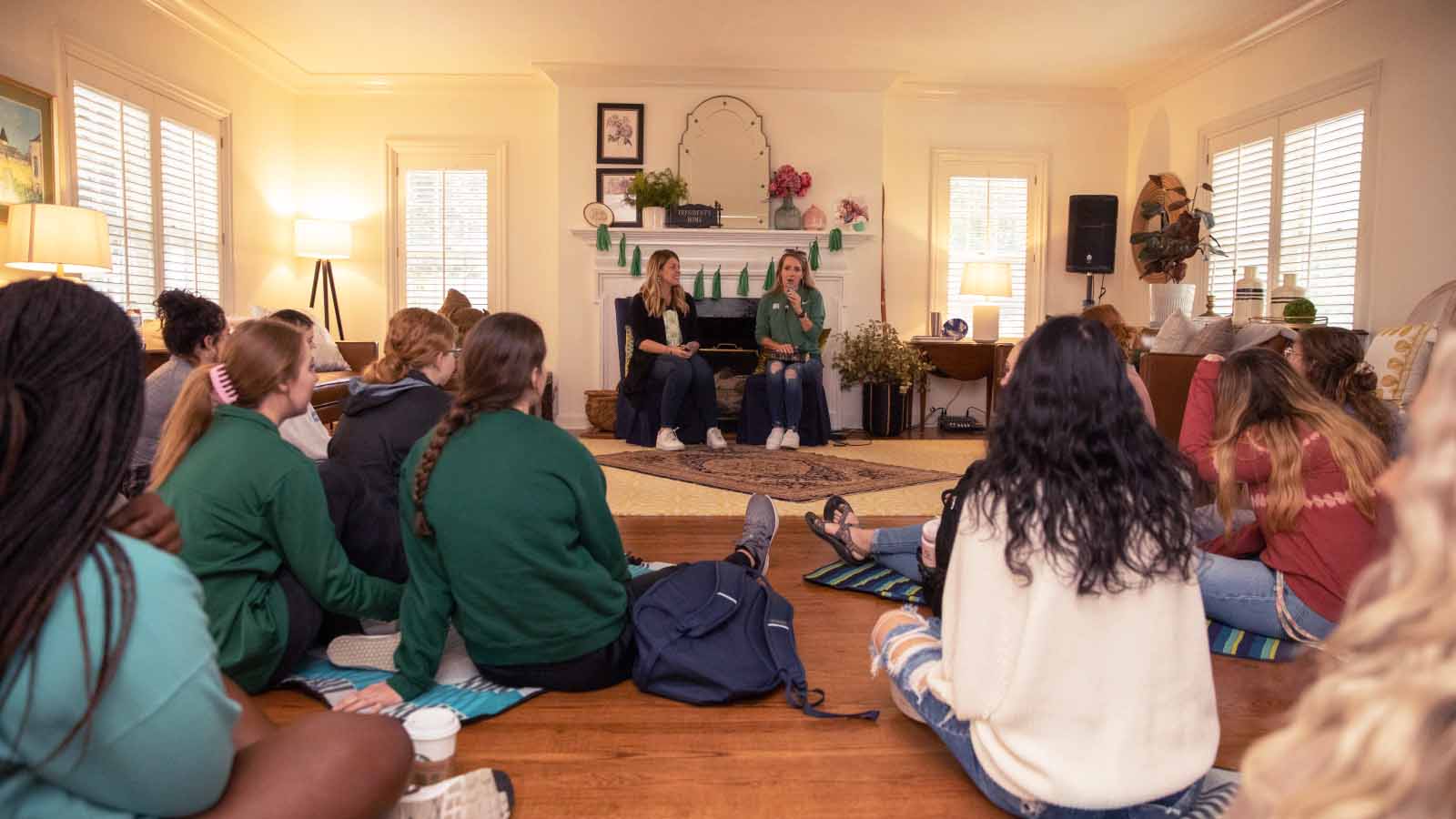Busler Shares Powerful Mental Health Story with Students at Courage and Connection Oct. 1
October 6, 2021
OBU’s First Lady Jill Thomas and guest speaker Julie Busler hosted a special Courage and Connection event Oct. 1 in the Cargill Advancement and Alumni Center on the University’s campus in Shawnee. All female students were invited to attend the special session, which focused on the importance of mental health and stressed the ways available to seek help for students who are struggling.
Busler currently serves as the Oklahoma president of Women’s Missionary Union (WMU) and is active in the women’s ministry at Immanuel Baptist Church in Shawnee. She and her husband Ryan have been married for 15 years, have four children and have served overseas in Canada, Mexico, Germany and Turkey. She will release a book on mental health in 2022.
During the event, Busler shared about her struggles with depression after growing up in a verbally and emotionally abusive household. She also talked about the trauma resulting from losing her mom to cancer following her freshman year of college. Busler explained that she didn’t process this loss in a healthy way and instead covered it up.
“I went back to college, put a smile on my face and went back to school,” she said. “No one knew, but I secretly started these thoughts. The intrusive thoughts really started then. And they were so harmless. At the beginning, it would be like, ‘no one loves me,’ or … ‘no one notices me, I'm alone.’”
Following this loss, Busler married her husband. They later started their family and also became overseas missionaries. Just before leaving for the mission field, however, her father committed suicide.
“I just kind of buried it again,” Busler said. “I never got help. I never got help after my mom died. And I didn't get help after my dad died.”
Despite this, Busler and her family moved across the ocean to Turkey and began their ministry. Though the ministry was very successful with many coming to Christ and Syrian refugees finding sanctuary in Busler's home, she continued to struggle with intrusive thoughts that were progressing towards suicidal thoughts.
“I was still having these thoughts and they had really grown in darkness,” she said. “It just kind of snowballed in my 30s to like, ‘maybe it's better if I'm not here,’ or ‘maybe I'm just a burden on my family’ … to ‘I should just end everything.’”
Eventually, Busler experienced the intrusive thoughts of planning her suicide and that is where the spirit of the Lord stepped in.
“I just remember thinking…I think it was Jesus, I really do. It was like, ‘something's not right with that [thought].’”
After reading a post from her mother-in-law outlining how great of an example Busler is for Christians and her children, she realized the difference between how she looked to others and how she was struggling inside.
“Depression or anxiety or mental illness, bipolar disorder, whatever it is, doesn't always look like you’re laying in bed, not showering, just sleeping all day. For me, I was very successful. I was very active in the ministry and I could teach the Bible, but I was still so depressed and so traumatized that I wasn't living that abundant life that can be ours. Even with the sorrow, you know, the sorrow of love and loss, of suffering, of depression, you can still have joy in that sorrow with Jesus, but I didn't know that.”
So with this, Busler felt compelled to reach out to a fellow missionary and her husband to talk about her struggles and seek help. After talking about it with her husband, they decided to visit a psychiatrist. After filling out a symptoms list, where Busler had to humble herself and admit to the feelings she was experiencing that at the time seemed opposite to the calling of the Bible, she realized that God cares about her mental health and her spiritual walk as much as he cares about those he called her to minister to.
“God cares about my health, too, and my spiritual walk with Him. He doesn't need me to like, go save the world. We get to cooperate with him. And he does allow us to be used, but he doesn't need us. So I had to see I'm not this missionary who came to save Turkey. I had to see my weakness and how broken I really was.”
After being admitted to a psychiatric hospital, Busler and her family returned to the United States, where she once again put on the mask of pretending everything was fine in her mind to avoid looking like a “failure” due to her mental health struggles. After mindlessly smiling and sharing about all the things God was doing overseas and feeling the dissonance in her own words, she walked back to a room in her home and began to make a plan to take her life. After surviving and recovering from her attempt at suicide, Busler was admitted to another psychiatric hospital in Oklahoma.
“This is where God intervened and started to change my perspective,” she said. “Faith and science can coexist in helping us to thrive.”
Busler explained that while in the hospital, she experienced peace in knowing that by taking the right medications, she wouldn’t be at risk. At the same time, however, she realized she also still needed Jesus in order to get through her struggles.
“It's okay to combine [faith and science],” Busler said. “It's not a sin to take medicine and to go to a psychiatrist or a therapist. That might be what you need … we’re all broken people.”
After experiencing this and believing she was unsuitable for ministry, Busler felt called to share her story at a ladies retreat.
“So I filmed this testimony. It aired and droves of women were messaging me [saying], ‘Me, too.’ ‘Me too.’”
With this, Busler realized the ministry that vulnerability and brokenness cultivates.
“It was just so shocking to me how many people struggle, and that made me realize, ‘oh, my goodness, no one's going to go to someone who's perfect for encouragement. They're going to go to someone who’s been broken and is walking in wholeness. That’s who you want to go to, because that’s who you identify with.”
“So my whole perspective changed. I realized that our weakness is just this platform to display the power of God, that our manufactured perfection can never do.”
OBU offers mental health services for all students and employees through its Kemp Marriage and Family Therapy Clinic. Students receive 10 free sessions per year, with additional sessions at only $10 each. Employees receive three free sessions per year, with additional sessions available at a sliding fee scale based on household size and income.
All services are completely confidential. The clinic provides individual therapy, premarital therapy, couples therapy, family therapy and art/play therapy for those struggling with stress, anxiety/depression, navigating emotions, grief, trauma, relationship concerns, coping skills and more.
If you or someone you know are dealing with suicidal thoughts, seek help immediately. The National Suicide Prevention Lifeline is available 24 hours per day and provides free, confidential support for people in distress, as well as resources to help those who are experiencing suicidal thoughts. Call 1-800-273-8255 for help and support.
Learn more about therapeutic services available at the Kemp MFT Clinic.



